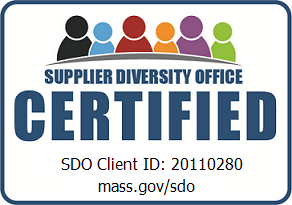It’s hard to deny the impact the Coronavirus (COVID-19) is having on the meetings industry. Already, major events both inside and outside of China such as Cisco Live Melbourne, a partner conference with more than 8,500 attendees and the Mobile World Congress, the mobile industry’s largest exhibition which was slated to take place in Barcelona this week with nearly 100,000 attendees, have been canceled. Others, such as the Alzheimer’s Disease International annual meeting in Singapore and the Beijing Auto Show have been postponed. Top brands such as Sony and Facebook have pulled out of large video game conventions, while other organizations such as the PGA are relocating events from China due to concerns about the virus. Even if your event is currently under low threat, you may be wondering about implications for the future.

From a meeting planning perspective, here are some items to consider in light of the unfortunate Coronavirus outbreak:
How Vulnerable is Your Event Both in the Short Term and Long Term?
- Involve key stakeholders including leadership, department heads, Public Relations and legal teams to perform a vulnerability audit. Assess the event’s level of risk on a scale of low, moderate or high. High risks such as hosting an event in a heavily affected area or having a significant number of attendees not able to attend due to travel bans will require immediate action and response.
- When is the event? Depending on how far out the event is, you have more or less time to act.
- What is the size and complexity of your program? Larger scale programs with global attendees will inherently carry more risk. Liability may also factor into the equation. Always remember, while it may be more expensive in the short run to cancel, it may be more expensive in the long run not to. The health and safety of your program participants should always be your top priority.
- Analyze attendee travel routes – It is important to review not only where your attendees are traveling from, but the routes they will take to travel to the event. For example, hosting an incentive program in Bali might still be acceptable but if attendees must travel through gateway cities under a travel advisory, the risk is greater.
- Consider the meeting venue/location – In addition to your group, what other events will be convening at the same time? Consult your hotel and convention bureau representatives to understand what other groups may be scheduled in the same spaces and/or coincide with your event.

What Can Meeting Planners Do?
- Have a plan – Once risk is assessed, establish a clear action plan for the current situation. This may involve canceling, postponing, relocating or keeping the event in place. Even if the event is moving forward as planned, be prepared for attendee questions and additional onsite needs such as an enhanced emergency response plan and increased health and safety precautions during the event.
- Communicate – Make sure to have effective communications channels in place, not only to inform your audience of news and updates but to respond to questions and concerns. Whether you are continuing to host the event or chose to postpone or cancel, there should be a clear statement of why and when.
- Check your cancellation clauses – Be aware of your attrition and cancellation dates and force majeure clauses, which allow parties to terminate contractual obligations under extreme circumstances, such as an “Act of God” or natural disaster. If necessary, consult an attorney to review how COVID-19 applies in your force majeure clause and/or if COVID-19 has made performance impossible under this provision.
- Review your event insurance policies – In today’s unpredictable environment, event organizers may choose to carry event cancellation insurance. Although some policies are now incorporating exclusions for the coronavirus, policies written before 2019 may not have. If you have purchased additional coverage for infectious disease cancellations, check to ensure this is still in place.
- Leverage technology – If a portion of your audience is unable to attend, consider other ways for them to be included via technology, such as live-streaming the event.
- Monitor and review frequently – The situation with the coronavirus is dynamic and constantly evolving. Make sure to stay on top of it.
- Keep a level head – Similar to a virus, panic spreads. Stay informed, deal in facts and consult experts in your decision making. Several organizing bodies have published helpful resources. Here are some applicable links:
- The Center for Disease Control’s (CDC) recommendations for traveling.
- World Health Organization (WHO): planning recommendations for large events.
- PCMA: What business events professionals need to know about the novel coronavirus
- USTA: Toolkit on Emergency Preparedness and Response: Coronavirus
As meeting planners, we are always planning for the unknown and trying to mitigate risk. The unfortunate outbreak of the coronavirus is no exception. We must continue to take a proactive role to ensure the safety and security of our meeting attendees. Both our Boston and Atlanta teams are doing everything we can to keep our clients safe.
To learn more about The Castle Group, meet our team, or continue to learn at our Castle News.


















